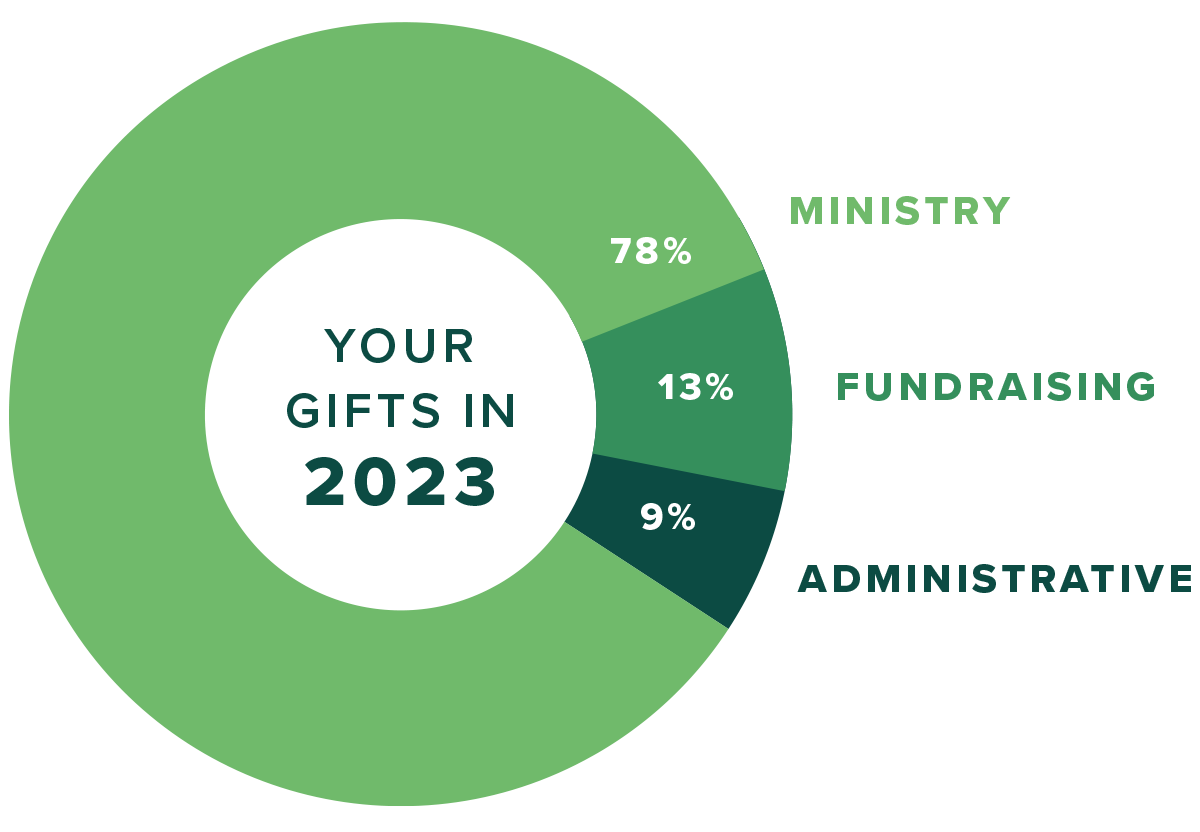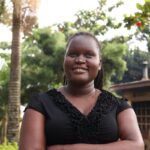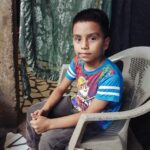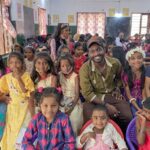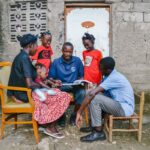A Pastor’s Devotion to Kids in
A pastor’s persistence and total immersion into struggling Kenyan villages is changing many young lives for the better.
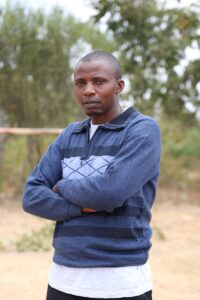
Pastor Michael is transforming many lives in Kenya.
Pastor Michael Kioko has spent much of his life spreading the Word of God in the Kenyan village where he was born as well as in neighboring communities.
But he didn’t just preach the gospel – he also worked to make sure that kids living in poverty in those communities had every opportunity to not only attend church, but also attend school and have a meal.
But when the COVID-19 pandemic shuttered a school that he had established to help kids thrive, Michael forged a partnership with OneChild to set up a Hope Center at his church.
The Hope Center allowed him to reach and help more kids struggling in poverty and give them hope for a better life.
Because of his hard work and total immersion into communities where the needs are many, Pastor Michael is transforming many lives in Kenya.
The Early Years
Michael was born in Kyamboo Village, Mbiuni, Kenya. He, however, grew up in Nairobi where he attended school. After high school, he was unable to attend university because his parents were poor and couldn’t pay the tuition.
So, he proceeded to look for jobs that would help him afford his daily needs. By then, his parents had moved back to the village in Kyamboo.
Michael landed his first job at a construction company where he worked as a painter for seven years. He says he was talented in painting, and that he was able to hone his skills with that job.
He then got a job as an office cleaner and a messenger at a tours and travel company, where he slowly rose through the ranks to become a visa coordinator before leaving that job and moving back to the village.
Honoring His Calling to Serve
Before leaving that job, Michael had begun serving as a Sunday school teacher in his church back in the village. He had to juggle being in the city for work and returning to the village 74 miles away every weekend to serve in the church.
He would board a bus to the village every Friday after work, then serve in his church and community over the weekend, and then catch a bus back to the city Sunday evening.
Michael says he needed his job in the city so that he would have money to facilitate his travel to and service in the village. However, he didn’t always have enough money for the bus to visit other villages. He would at times be forced to walk for over six miles to reach the other villages nearby.
In addition to being a Sunday school teacher, Michael also became an evangelist and would visit the homes of people in the communities, talking to them about Jesus, praying for them, and offering help whenever he could.
“Visiting people door to door opened my eyes to details of struggles that were in my community,” he says. “And as days and years went by, I felt burdened to go deep into ministry because I realized there was a gap in the community.”
In 2006, he left that work and relocated with his wife and kids back to the village, where he began farming and set up a bookshop that earned him an income. In the same year, after attending Bible college, he became an assistant pastor in a church in Mbiuni.
Being in the village allowed him to spend more time to conduct door-to-door evangelism. During these daily interactions with people in the villages, he says he heard God speak to him to start a church in Etikoni, one of the villages where he evangelized, which was six miles from his home.
Taking the Gospel to a Hard Place
“When I heard God’s voice, I wondered how I would do it because I did not have a steady income, but I trusted that He who had spoken to me would provide and enable me start and run a church,” Michael recalls.
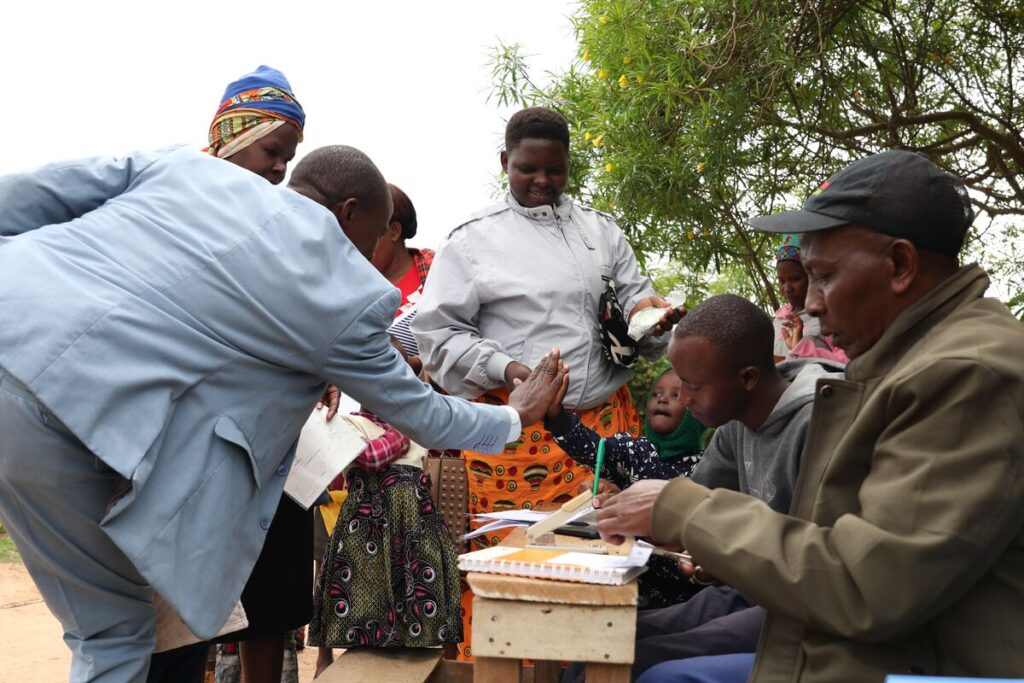
Pastor Michael welcomes kids to the Hope Center on registration day.
He then went to his pastor, Thomas Muasya, and shared the news with him. Together they prayed about the calling that God had placed in Michael’s heart. Pastor Muasya also helped him identify a place where he could buy land to set up a church.
In his final fellowship at the church before Muasya bid him goodbye, Michael recalls Muasya’s words.
“At the place that the Lord is leading you to start a church,” Muasya told him, “many churches have been there previously, and they all ended up closing because of the resistance they faced. But after praying with you, I had the voice of the Lord tell me that you will go there and won’t close doors. You are the hope of that community.”
And as Michael set up his church, true to Muasya’s words, he faced a lot of resistance in the community. But he says his hope of transforming the community made him resilient during the tough times.
He recalls some of the challenges he faced.
“From some people instilling fear to the congregants not to come to church, to people refusing to sell me land when the church needed to expand,” Michael says. “I would be accused of things I hadn’t done, but in all, I believe God used me to soften the heart of people in the community.”
Today, Pastor Michael, 49, is loved and trusted by the families and kids in his community.
As the church grew in numbers, he introduced a children’s ministry department. The kids would come to church on Saturday to prepare for their service on Sunday. At that time, the church had no Sunday school teachers, so Pastor Michael served the kids, the youths, and the adults in church in that capacity.
Lifting Children
He says he wanted to reach many more kids because he realized that the community had a lot of kids and only a few attended churches. So, Michael organized the very first children-led crusade in the market area in 2017.
To prepare for it, he first set up a campaign to let the community know of the planned event. He went around the village with kids from the Sunday school telling people about the crusade.
He also designed black-and-white posters of the event and had them placed in every corner of the market. The event’s tagline read, “Where children are, there’s God.”
After advertising the event, Michael prepared his teams of kids to run the crusade. They selected songs and rehearsed them. A child was picked to preach on that day, another oversaw the reading of the Bible, and another was to run the entire program.
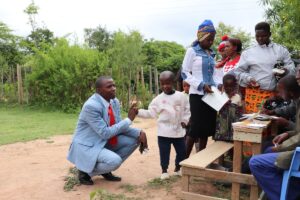
Pastor Michael greets each child as they are registered into the Hope Center.
He says the success of the event opened the door to many other child-led crusades in the community, which happened every year until 2020, when gatherings were restricted due to the COVID-19 pandemic.
Michael also introduced a Saturday program for the kids at his church in 2018, where kids would come to church to learn, fellowship, play, and also share a meal. He rallied the church to raise funds to help feed the kids, and some members volunteered to cook for them.
At that time, his church had grown, and he had several Sunday school teachers who attended to more than 70 kids. The same teachers volunteered to serve about 40 kids who had registered for the Saturday program.
Michael says he also made time on Saturdays to catch up with the kids before they left the church.
“We would have unstructured talks,” he says. “But I made sure to know if they were all in school, and what their progress was like. As we talked, I would get to know who was sick, whose family did not have food, who was away from school for lack of school fees, and any other challenge they had at home.”
From the conversations, he would know what exact help they needed. For those who couldn’t afford school fees, he would pay for them or ask for a subsidized rate from the schools.
In addition to being a respected figure in the community, Michael also sits on the board of management of two of the schools, and this allows him to ask for subsidized rates for kids who can’t afford school fees.
As the Saturday program at his church gained momentum, he says his quest to serve kids grew by the day.
“I began wondering how I would move from meeting the kids only on the weekends to meeting them often,” he says.
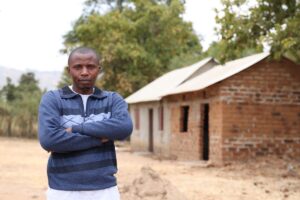
Pastor Michael says a call from the OneChild Country Director about opening a hope center in his community was an answered prayer.
“Apart from meeting their socio-emotional, physical, and spiritual needs, I wanted to meet their cognitive needs too. It is then that God placed in my heart the desire to start a school.”
After consultation with elders in his church, he set up a school that had a kindergarten and lower primary classes.
The school had subsidized rates for the kids where the church would pay half of the fee needed and the parents would pay the remaining half.
Meals at the school were free because the church funded them. Michael says the feeding program was a great incentive that encouraged kids to come to school daily.
However, the school closed during the pandemic because the parents struggled to raise their share of the fee. After running the school for months without the parents’ contribution, it became unsustainable.
Hope Comes With a Hope Center
In 2022, Pastor Michael received a call from Nicholas, the Country Director of OneChild in Kenya, asking him of a possible partnership that would lead to an establishment of a Hope Center at his church.
Nicholas and Michael had previously met years back when Nicholas visited the community to meet with pastors. He also talked to them about what OneChild does.
Pastor Michael says the call from Nicholas was an answered prayer.
“I used to speak about the future with a lot of affirmation about being able to reach many more kids in the community,” Michael says. “When I spoke my heart out to the church, we began praying for a way. So, as we were deep in prayer about it, Nicholas called.”
Currently, there is a Hope Center at the church with 115 kids registered into the OneChild sponsorship program.
In addition to operating the Hope Center, the church resumed its Saturday program for some of the kids in their program who were too old to register at the Hope Center. Kids need to be 3 to 7 years old to register.
“I am glad that we now get to reach most kids in the community,” Michael says. “Over 80% of them are members of my church. Some of them have never been to any place of worship before, but I am glad that I gifted them. I have prayed and tried different ways of reaching kids. We even tried a school, but it closed, and now, I have a perfect way of reaching kids that I previously struggled to reach. My prayers were answered in time and perfectly.”
Pastor Michael and his wife have three sons and also sponsor nine other kids in the community through high school.
His Heart for Kids
But his compassion doesn’t stop there. Whenever Michael hears of a child who is at home out of school because their family can’t afford school fees, he reaches out to men in the community to help him raise funds for them.
“These are our kids, we are the fathers in this community, and our role is to provide for kids in our community,” he says.
His hope for the kids is that they can become resilient to the poverty and challenges they face and achieve their God-given potentials.
“For all the effort you put into giving a child in a hard place hope,” he says, “know that you are greatly contributing to the transformation of the world.”
Help OneChild go further into the hard places, open more Hope Centers, and do whatever it takes to reach more kids in poverty by giving to the Partners Fund.
We are accountable to the children we serve AND to our donors.
Our accountability to our donors is one of our highest priorities. Our goal is to use the funds entrusted to us as wise stewards. To do this requires continued monitoring of our fund distribution. OneChild is also a member in good standing with the Evangelical Council for Financial Accountability (ECFA)
